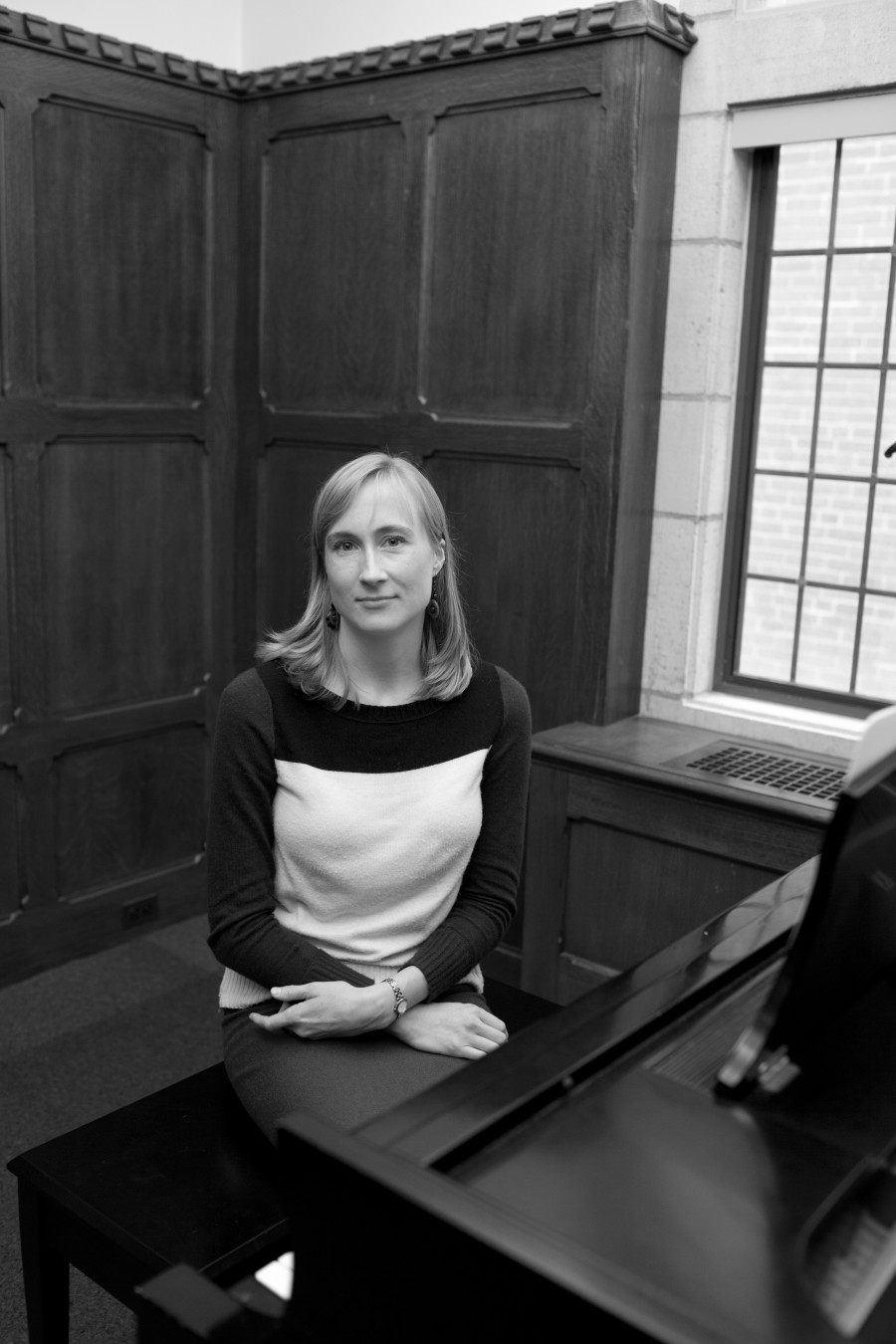
Hannah Lash’s first love was Bach. She remembers the first time she heard his music: “I wanted to create it. I wanted to figure out how it worked,” she says. It didn’t matter that she was only 4 years old and that she hadn’t yet learned proper music notation in her Suzuki violin lessons. “I had this little system of X’s, dots, and dashes and things, and they meant various notational things for me,” she explains.
Decades later, Nash continues to compose; she teaches composition at the Yale School of Music, where she is the only female professor of composition alongside four men. The situation is similar in universities across the country, where fifteen percent of the composition faculty is women, according to WQXR, New York City’s classical music station. Historically, the disparity has been even starker. Ask readers to name female authors, and they’ll probably be able to name some—Emily Dickinson and Jane Austen, at the very least. But most classical music listeners would have trouble naming a single female composer. Virtually all of the canonical composers are men.
So Lash, like most female composers, often encounters what she calls the “dreaded question”: “What is it like to be a female composer?” The best response she says female composers can give: “What is it like to be a male composer?”
***
Lash grew up in upstate New York. Her parents, who were both librarians, educated her themselves instead of sending her to school. “Their philosophy was to give me free rein in the library,” she says.
At 16, Lash began studying at the Eastman School of Music, under the instruction of composer Augusta Read Thomas. At the time, Thomas was the only woman on Eastman’s composition faculty, and her music challenged stereotypes about female composers’ work: essentially, that it was less ambitious. But Lash simply took Thomas’s music for what it was: great music.
Even today, those stereotypes persist. Lash says that audience members and even some musicians believe—whether consciously or not—that women write intuitive, emotional music, while men write grandly orchestrated, intellectual works. For her, this idea is preposterous. As she puts it, “Music transcends the idea of gender.”
And misconceptions about women’s compositions have hardly stopped Lash from coming into her own as a composer. She has won awards ranging from the Charles Ives Scholarship from the Academy of Arts and Letters to the Fromm Foundation’s the Naumberg Prize in Composition, as well as a scholarship to the Yaddo artists’ colony. Prior to the 2010 premiere of “Blood Rose,” the chamber opera she based on the story of “Beauty and the Beast,” The New York Times wrote: “Ms. Lash has created an impressive body of work, combining avant-garde techniques with a post-Romantic expressiveness.” In 2014, The Los Angeles Times praised her as a “sensitive orchestrator [who] applied vibrant dabs of color to an essentially Messiaen-like sound world,” for a composition entitled “This Ease.”
***
Lash entered Eastman to study harp performance, before moving on to composition. Most of her friends were men, because the composition students were predominantly male, though many of her fellow harpists were female. She says people found her “less aggressive,” and her playing “picturesque,” largely because harp is generally considered to have a more delicate quality. But for her, this image has nothing to do with musicians’ real work. She insists that her male classmates never approached her music with preconceived notions based on her gender.
While studying, she came to emulate the academic style of her male teachers. She found much of her identity as a composer through this kind of imitation. But she worked to maintain her individual style: “I also wanted to feel that I could establish a persona that would feel comfortable to me,” she says.
Her compositions—and the way she talks about them—are marked by a streak of defiance. When Lash was a composition student in the Ph.D. program at Harvard, she insisted on writing a fugue—a composition in which the melody is introduced and then repeated, while intertwining with other parts. Fugues were popular 350 years ago, in the age of Bach and Handel. Today, most composers do not even consider writing in the form. Martin Bresnick, a colleague at the Yale School of Music, explains that it was “like someone writing an oration in the style of Cicero” today.
Even when her music does seem to follow the stereotype of the serene harpist, she won’t let you think that for long. She remembers a man telling her that he thought her music was very feminine because “the textures are just so beautiful,” to which she responded, “Does the Impressionist movement seem feminine to you because the textures are beautiful?”
Sexism, she says, doesn’t really affect the way she composes. “It’s more about numbers for me, and feeling as though I want to teach by example and be a good colleague,” she says. Just as Lash was allowed to shape her own musical education, she believes that her students find themselves better when they are not explicitly told what to do. “A composer needs to have a very solid sense of himself or herself,” she says.
One of her students, Tiange Zhou, explains that Lash’s focus on students’ individual identities is what made the Yale School of Music such a special place for her. The school gives students “this very big space to do things for themselves. Not only to imitate someone, but to be a person.”
And it is through music that Lash and Zhou have formed a lasting relationship. For Zhou, Lash is “not only a teacher, but a friend.” More than that, though, Lash is the role model for Zhou that Augusta Read Thomas was for her. When Zhou thinks of Lash, she tells herself, “That is a possibility. That is how a female composer can be.”
Eric Lin is a freshman in Morse College.

